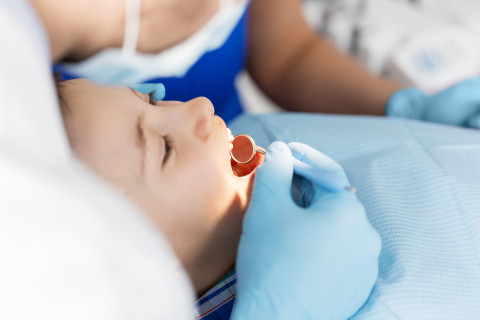According to a recent study, tooth enamel damage common in coeliac disease may be caused by an autoimmune reaction triggered by gut or food proteins. The Institute of Dentistry at the University of Eastern Finland was involved in the international collaborative study, the results of which were published in Nature, one of the world's most prestigious scientific journals.
The researchers found a link between tooth enamel developmental disorders observed in certain autoimmune diseases, such as coeliac disease, and the appearance of autoantibodies against proteins responsible for the formation of healthy tooth enamel.
Coeliac disease is one of the most common autoimmune diseases today, mostly developing in childhood. One in 100 people is coeliac.
The small intestinal enzyme protein transglutaminase 2 (TGM2) plays a key role in triggering coeliac disease by modifying the gliadin protein, a component of gluten in the diet, in the gut. The immune systems of affected people react to the enzyme/gliadin complex and produce autoantibodies against both these proteins. The appearance of antibodies against TGM2 is so specific to the disease that it is also used to screen for coeliac disease.
Although the main symptom of coeliac disease is inflammation of the intestine, it is well known that in children affected by the disease, the tooth enamel often fails to develop properly. Often, the child's dentist is the first to suspect coeliac disease.
For a long time it was thought that the dental manifestations in coeliac disease were mainly caused by the malabsorption associated with gut inflammation. However, the present study showed for the first time that the defects in enamel formation can be caused by antibodies produced against proteins in the gut or in the diet, by binding to proteins that control the development of tooth enamel. This is due to the fact that tooth enamel proteins have similar binding sites for antibodies as, for example, the TGM2 enzyme and the kappa-casein protein in cow's milk.
The study involved researchers from the Czech Republic, Israel, Norway, Hungary, and Finland. 48 adults and 21 children with coeliac disease, as well as 28 APS1 patients with another autoimmune disease, APS1, and participated in the study. The immune response related to enamel damage was also studied in animal models. University teacher Szabolcs Felszeghy from the University of Eastern Finland contributed to the study by showing, among other things, that antibodies against TGM2 in celiac disease patients can bind to the tooth enamel proteins and thus interfere with tooth development.
For further information, please contact:
University Teacher Szabolcs Felszeghy, University of Eastern Finland, https://uefconnect.uef.fi/en/person/szabolcs.felszeghy/
Research article:
Gruper, Y., Wolff, A.S.B., Glanz, L. et al. Autoimmune amelogenesis imperfecta in patients with APS-1 and coeliac disease. Nature (2023). https://doi.org/10.1038/s41586-023-06776-0



